About the Journal
The journal Monograma was born as a result of the digital revolution. This revolution promotes a free access to scientific and literary writing, and an immeasurable dissemination of cultural creation. An ocean of digital data makes texts, images and sounds circulate among continents. Numerous journals like this one navigate in this ocean; journals that bring to its edge, along with the material demeanour of the tradition, a reading know-how, a seeing know-how, and a living know-how that are part of the intangible heritage of humanity. Monograma joins this novel transit with a specific route and a challenging longing: it travels the space between the Americas and the Iberian Peninsula, transferring from one part to another the testimonies of very diverse cultures; cultures also brought closer by the similarity and interweaving of their many languages.
According to a program orientation to Ibero-American heritage, the journal is composed of articles on different topics: literature, thought, painting, music, architecture, cinema, visual culture and theatre, produced in the Spanish-speaking and Portuguese-speaking world. The scientific activity of Monograma, rooted in cultural studies and the inevitable pluralism of the humanistic disciplines, is combined with the declared purpose of defending the cultural heritage of this area, threatened by the explosion of information and the increasingly evident indifference of the digital media in the face of the certain and the false, the pertinent and the impertinent. In this digital reality, to us it seems essential to abide by the formal regulations and the material supports of the philological practice; without neglecting, in a hermeneutic way and with the necessary scepticism, the sense of this material and immaterial legacy.
In this, the contemporary culture seems very close to the culture of the first humanism, animated by a philological rigour, as well as by spiritual concerns. The title of our journal, Monograma, evokes not only the classicist tradition that projects a splendid model of work on multiple patrimonies, but also this division between the text, the meaning and the image. Even though it cannot start from a monolithic unit ‒neither in the existing reality of the heritage, nor in its possible interpretations‒ the dialogue must reach an understanding, which goes hand in hand with a respect for the diversities that represent the richness of the human race, and the solidarity that responds to the tragedies inscribed in the very cultural heritage. Language is the place of this understanding and scientific discussion among human beings. The careful reading of works of cultural creation must be an optimal model that we transmit to future generations.
Monograma is open to researchers from any university, either national or international, as well as professionals from the humanistic field, who want to share their unpublished and original content of their research.





